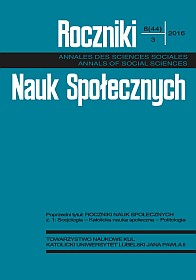The European Union’s Comprehensive Approach to External Conflicts and Crises. Legal and Institutional Analysis
Abstract
In the pursuit of the objectives of the external action of the European Union the Lisbon Treaty calls for consistency between the different areas of EU external action and between these and its other policies. Following the entry into force of the Treaty and the new institutional context it created, the EU has both the increased potential and the ambition – by drawing on the full range of its instruments and resources – to make its external action more consistent, more effective and more strategic. The ideas and principles governing the comprehensive approach have yet to become, systematically, the guiding principles for EU external action across all areas, in particular in relation to conflict prevention and crisis resolution.The European institutions sets out a number of concrete steps that the EU, collectively, is taking towards an increasingly comprehensive approach in its external relations policies and action. This covers all stages of the cycle of conflict or other external crises; through early warning and preparedness, conflict prevention, crisis response and management to early recovery, stabilisation and peace-building in order to help countries getting back on track towards sustainable long-term development.
References
Boudon R.: Wykraczając poza teorię racjonalnego wyboru, w: Nowe perspektywy teorii socjologicznej, red. A. Manterys, J. Mucha, M. Kaczmarczyk, Kraków: Zakład Wydawniczy Nomos 2009.
Czachór Z.: Kryzys i zaburzona dynamika Unii Europejskiej, Warszawa: Dom Wydawniczy Elipsa 2013.
Delors J.: Lamy P., Vitorino A., Landaburu E., Davignon E., Gnesotto N., Guigou E., de Schoutheete P., Fabry E., Koenig N., T. Pellegrin-Corlin, EU Security: A Matter of Political Urgency, Jacques Delors Institute, „Tribune”, 2016, nr 1 (March).
Ende M.: Die unendliche Geschichte. Sonderausgabe, Berlin: Thienemann Verlag 2004.
Reiche S.: Na drodze ku europejskiej armii. Stanowisko grupy roboczej, seria: Zagadnienia bezpieczeństwa oraz sprawy Unii Europejskiej, Berlin, 27 marca 2007 r., materiały własne autora.
Scorecard 2016: Europa w cieniu dominujących potęg, http://www.ecfr.eu/warsaw/post/scorecard_ 2016_europa_w_cieniu_dominujacych_poteg [dostęp: 16.02.2016].
Scorecard 2016: Europa w cieniu dominujących potęg, http://www.euractiv.pl/polityka-zagraniczna [dostęp: 6.03.2016].
Stoker G., Marsh D.: Wprowadzenie, w: Teorie i metody w naukach politycznych, red. D. Marsh, G. Stoker, Kraków: Wydawnictwo Uniwersytetu Jagiellońskiego 2006.
Traktat o Unii Europejskiej, wersja skonsolidowana, „Dz. Urz. Unii Europejskiej” C, 326, 2012.
Trela G.: Chmury i zegary, czyli wybrane metafory filozoficzne, Warszawa–Bielsko–Biała: Wydawnictwo Naukowe PWN 2009.
Ward H.: Teoria racjonalnego wyboru, w: Teorie i metody w naukach politycznych, red. D. Marsh, G. Stoker, Kraków: Wydawnictwo Uniwersytetu Jagiellońskiego 2006.
Wspólny komunikat do Parlamentu Europejskiego i Rady - kompleksowe podejście UE do zewnętrznych konfliktów i sytuacji kryzysowych, COM JOIN(2013) 30 final, Bruksela, 18 grudnia 2013 r.
Żołądek Ł., Kuszel K.: Opinia w sprawie wspólnego komunikatu do Parlamentu Europejskiego i Rady: Kompleksowe podejście UE do zewnętrznych konfliktów i sytuacji kryzysowych, BAS-WAP-WAPEiM-6/14, Warszawa, 6 marca 2014 r., JOIN(2013) 30 final.
Copyright (c) 2016 Roczniki Nauk Społecznych

This work is licensed under a Creative Commons Attribution-NonCommercial-NoDerivatives 4.0 International License.


